217 Results
NIH Awards Will Fund Post-Treatment Lyme Disease Syndrome Research
July 21, 2023
Five projects awarded for research to better understand Post-treatment Lyme Disease Syndrome (PTLDS), which is a collection of symptoms, such as pain, fatigue, and difficulty thinking or “brain fog,” that linger following standard treatment for Lyme disease.
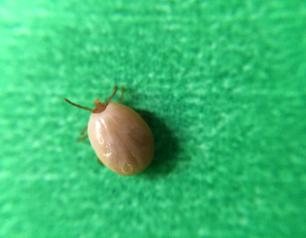
Investigational Three-Month TB Regimen Is Safe but Ineffective, NIH Study Finds
July 5, 2023
The first clinical trial of a three-month tuberculosis (TB) treatment regimen is closing enrollment because of a high rate of unfavorable outcomes with the investigational course of treatment. Advancing Clinical Therapeutics Globally for HIV/AIDS and Other Infections (ACTG) 5362, also known as the CLO-FAST trial, sought to evaluate the safety and efficacy of a three-month clofazimine- and high-dose rifapentine-containing regimen. An interim data analysis showed that participants taking the investigational regimen experienced ongoing or recurring TB at rates above thresholds set in the study protocol.
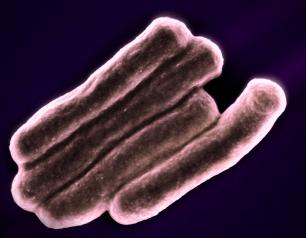
Screening Newborns for Deadly Immune Disease Saves Lives
June 20, 2023
Introducing widespread screening of newborns for a deadly disease called severe combined immunodeficiency, or SCID, followed by early treatment boosted the five-year survival rate of children with the disorder from 73% before the advent of screening to 87% since, researchers report. Among children whose disease was suspected because of newborn screening rather than illness or family history, 92.5% survived five years or more after treatment.
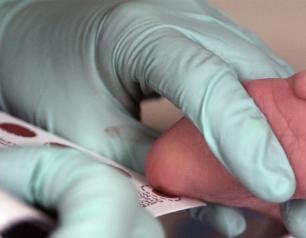
NIH Statement on HIV Vaccine Awareness Day 2023
May 18, 2023
Today marks the 26th observance of HIV Vaccine Awareness Day. The National Institutes of Health applauds the efforts of the collaborative global community of scientists, advocates, study participants, study staff, and funders enabling unprecedented levels of innovation and adaptation in the pursuit of a highly effective HIV vaccine.

First-in-Human Trial of Oral Drug to Remove Radioactive Contamination Begins
May 15, 2023
A first-in-human clinical trial of an experimental oral drug for removing radioactive contaminants from inside the body has begun. The trial is testing the safety, tolerability and processing in the body of escalating doses of the investigational drug product HOPO 14-1 in healthy adults. The National Institute of Allergy and Infectious Diseases (NIAID), part of the National Institutes of Health, is funding the Phase 1 trial, which is sponsored and conducted by SRI International of Menlo Park, California.
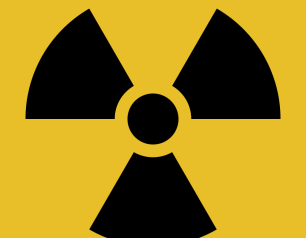
Clinical Trial of mRNA Universal Influenza Vaccine Candidate Begins
May 15, 2023
A clinical trial of an experimental universal influenza vaccine developed by researchers at the National Institute of Allergy and Infectious Diseases’ (NIAID) Vaccine Research Center (VRC), part of the National Institutes of Health, has begun enrolling volunteers at Duke University in Durham, North Carolina. This Phase 1 trial will test the experimental vaccine, known as H1ssF-3928 mRNA-LNP, for safety and its ability to induce an immune response.
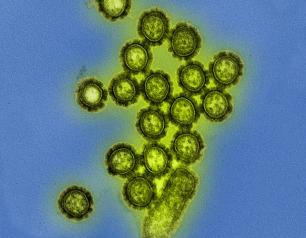
NIH Celebrates FDA Approval of RSV Vaccine for People 60 Years of Age and Older
May 4, 2023
Food and Drug Administration announced the approval of the first respiratory syncytial virus (RSV) vaccine approved for use in the United States. The vaccine, Arexvy, is approved for the prevention of lower respiratory tract disease caused by RSV in individuals 60 years of age and older.
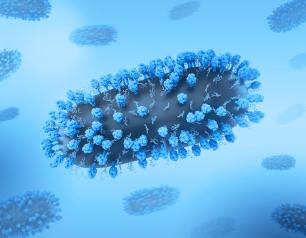
NIH Researchers Uncover New Details on Rare Immune Disease
May 3, 2023
In an 11-year study, researchers at the National Institutes of Health have further characterized idiopathic CD4 lymphocytopenia (ICL), a rare immune deficiency that leaves people vulnerable to infectious diseases, autoimmune diseases and cancers. Researchers observed that people with the most severe cases of ICL had the highest risk of acquiring or developing several of the diseases associated with this immune deficiency. This study, published in the New England Journal of Medicine, was led by Irini Sereti M.D., M.H.S. and Andrea Lisco, M.D., Ph.D.
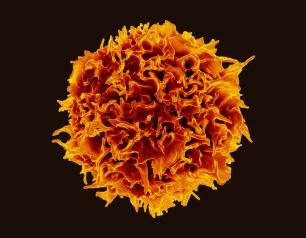
NIH Statement on World Asthma Day 2023
May 1, 2023
Today, the National Institutes of Health recognizes World Asthma Day and the innovative research that is helping to shed light on the disease, pave the way for effective treatments and improve the lives of people who have asthma.
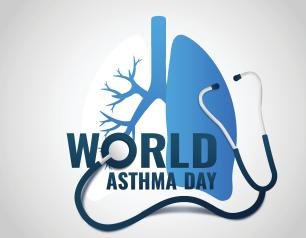
NIAID Marks World Malaria Day
April 25, 2023
World Malaria Day is an opportunity to reflect on continuing challenges posed by malaria and reaffirm a commitment to overcoming them. The National Institute of Allergy and Infectious Diseases (NIAID), part of the National Institutes of Health, joins with the global health community in recognizing this year’s theme of “Time to Deliver on Zero Malaria: Invest, Innovate, Implement.”
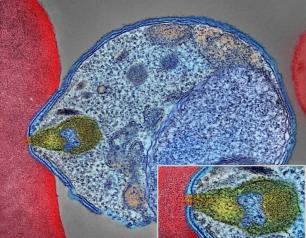
NIAID Appoints Ted Pierson as New Vaccine Research Center Director
April 25, 2023
The National Institute of Allergy and Infectious Diseases (NIAID), part of the National Institutes of Health, has named Theodore (Ted) C. Pierson, Ph.D., as the new director of its Dale and Betty Bumpers Vaccine Research Center (VRC) in Bethesda, MD.

Study Shows Most Children Recover from Lyme Disease within Six Months of Treatment
April 21, 2023
A majority of parents of children diagnosed with Lyme disease reported that their kids recovered within six months of completing antibiotic treatment, according to a new joint study from Children’s National Research Institute and the National Institute of Allergy and Infectious Diseases (NIAID), part of the National Institutes of Health, published in Pediatric Research.
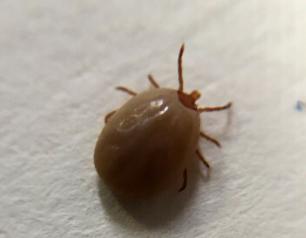
The Potential and Challenges of Mucosal COVID-19 Vaccines
April 13, 2023
In November 2022, the National Institute of Allergy and Infectious Diseases (NIAID) co-hosted a virtual workshop on the importance and challenges of developing mucosal vaccines for SARS-COV-2. The highlights of this workshop have now been published as a report in npj Vaccines.
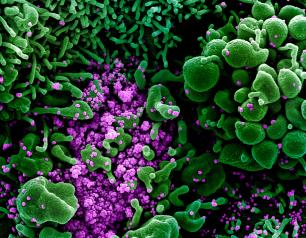
Daily Statin Reduces the Risk of Cardiovascular Disease in People Living with HIV, Large NIH Study Finds
April 11, 2023
A National Institutes of Health (NIH) clinical trial was stopped early because a daily statin medication was found to reduce the increased risk of cardiovascular disease among people living with HIV in the first large-scale clinical study to test a primary cardiovascular prevention strategy in this population.
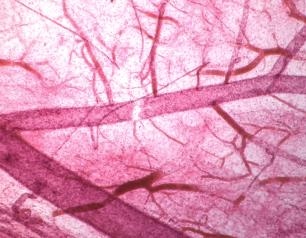
NIH-Funded Study Finds Doxycycline Reduces Sexually Transmitted Infections by Two-Thirds
April 6, 2023
The oral antibiotic doxycycline prevented the acquisition of sexually transmitted infections (STIs) when tested among study participants who took the medication within 72 hours of having condomless sex. The post-exposure approach, termed doxy-PEP, resulted in a two-thirds reduction in the incidence of syphilis, gonorrhea, and chlamydia among the study participants.
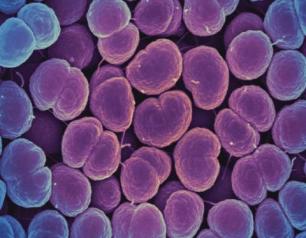
NIH Researchers Discover New Autoinflammatory Disease, Suggest Target for Potential Treatments
March 28, 2023
Scientists have identified an autoinflammatory disease caused by mutations in the LYN gene, an important regulator of immune responses in health and disease.
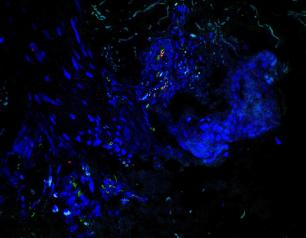
World TB Day 2023 – ‘Yes! We Can End TB!’
March 24, 2023
Each year, on March 24, the National Institute of Allergy and Infectious Diseases (NIAID), part of the NIH, joins people and organizations from around the globe in marking World Tuberculosis Day. On this day, more than 140 years ago, Dr. Robert Koch announced his discovery that most human tuberculosis (TB) is caused by the bacterium Mycobacterium tuberculosis (Mtb). Although our scientific insight into this disease has grown over the past century, TB is still one of the deadliest infectious diseases on the planet. Today, NIAID joins the world in a message of hope: “Yes!
SARS-CoV-2 Infection Weakens Immune-Cell Response to Vaccination
March 20, 2023
The magnitude and quality of a key immune cell’s response to vaccination with two doses of the Pfizer-BioNTech COVID-19 vaccine were considerably lower in people with prior SARS-CoV-2 infection compared to people without prior infection, a study has found. In addition, the level of this key immune cell that targets the SARS-CoV-2 spike protein was substantially lower in unvaccinated people with COVID-19 than in vaccinated people who had never been infected. Importantly, people who recover from SARS-CoV-2 infection and then get vaccinated are more protected than people who are unvaccinated.

Temperature-Stable TB Vaccine Safe, Prompts Immune Response in NIH-Supported Study
March 6, 2023
A clinical trial testing a freeze-dried, temperature-stable experimental tuberculosis (TB) vaccine in healthy adults found that it was safe and stimulated both antibodies and responses from the cellular arm of the immune system. The Phase 1 trial was supported by the National Institute of Allergy and Infectious Diseases (NIAID), part of the National Institutes of Health. A non-temperature stable form of the candidate previously had been tested in several clinical trials.
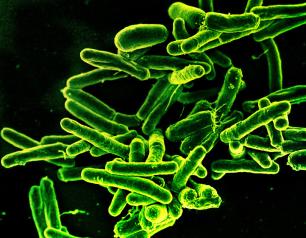
Forgoing One Food Treats Eosinophilic Esophagitis as Well as Excluding Six
February 27, 2023
Eliminating animal milk alone from the diet of adults with eosinophilic esophagitis, or EoE, is as effective at treating the disease as eliminating animal milk plus five other common foods, a clinical trial funded by the National Institutes of Health has found. For people with EoE whose disease remains active after they forgo animal milk, a more restrictive diet may help them achieve remission, according to the researchers. These findings were published today in the journal The Lancet Gastroenterology & Hepatology.
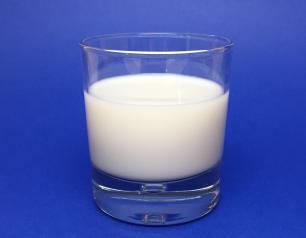
NIH Trial to Evaluate Shionogi Antiviral in Adults Hospitalized with COVID-19
February 15, 2023
The National Institutes of Health has initiated a multi-site clinical trial evaluating an investigational antiviral for the treatment of COVID-19. The therapeutic, known as S-217622 or ensitrelvir fumaric acid, was discovered by Hokkaido University, Sapporo, Japan; and Shionogi & Co., Ltd., Osaka, Japan. The trial is assessing whether S-217622 can improve clinical outcomes for patients who are hospitalized for management of COVID-19 as compared to a placebo and will enroll approximately 1,500 people at sites worldwide.
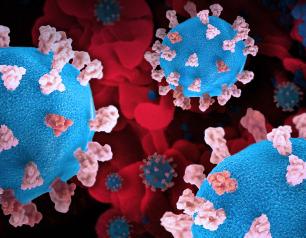
NIH Scientists Develop Mouse Model to Study Mpox Virulence
February 14, 2023
Scientists from the National Institute of Allergy and Infectious Diseases (NIAID), part of the National Institutes of Health, have removed a major roadblock to better understanding of mpox (formerly, monkeypox). They developed a mouse model of the disease and used it to demonstrate clear differences in virulence among the major genetic groups (clades) of mpox virus (MPXV). The research, appearing in Proceedings of the National Academy of Science, was led by Bernard Moss, M.D., Ph.D., chief of the Genetic Engineering Section of NIAID’s Laboratory of Viral Diseases.
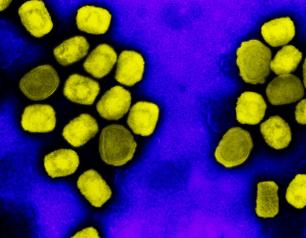
Experimental NIH Sudan Virus Vaccine Protects Macaques
February 2, 2023
A National Institutes of Health research group with extensive experience studying ebolavirus countermeasures has successfully developed a vaccine against Sudan virus (SUDV) based on the licensed Ebola virus (EBOV) vaccine. SUDV, identified in 1976, is one of the four viruses known to cause human Ebolavirus disease. The new vaccine, VSV-SUDV, completely protected cynomolgus macaques against a lethal SUDV challenge. The findings were published in the journal The Lancet Microbe.
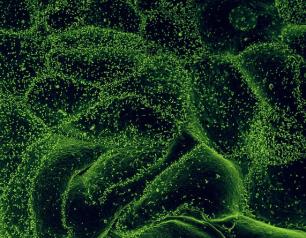
Marburg Vaccine Shows Promising Results in First-in-Human Study
January 30, 2023
A newly published paper in The Lancet shows that an experimental vaccine against Marburg virus (MARV) was safe and induced an immune response in a small, first-in-human clinical trial. The vaccine, developed by researchers at the National Institute of Allergy and Infectious Diseases (NIAID), part of the National Institutes of Health, could someday be an important tool to respond to Marburg virus outbreaks.
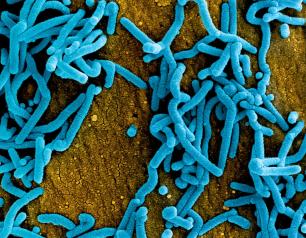
Experimental HIV Vaccine Regimen Safe but Ineffective, NIH Study Finds
January 18, 2023
An investigational HIV vaccine regimen tested among men who have sex with men (MSM) and transgender people was safe but did not provide protection against HIV acquisition, an independent data and safety monitoring board (DSMB) has determined. The HPX3002/HVTN 706, or “Mosaico,” Phase 3 clinical trial began in 2019 and involved 3,900 volunteers ages 18 to 60 years in Europe, North America and South America.

